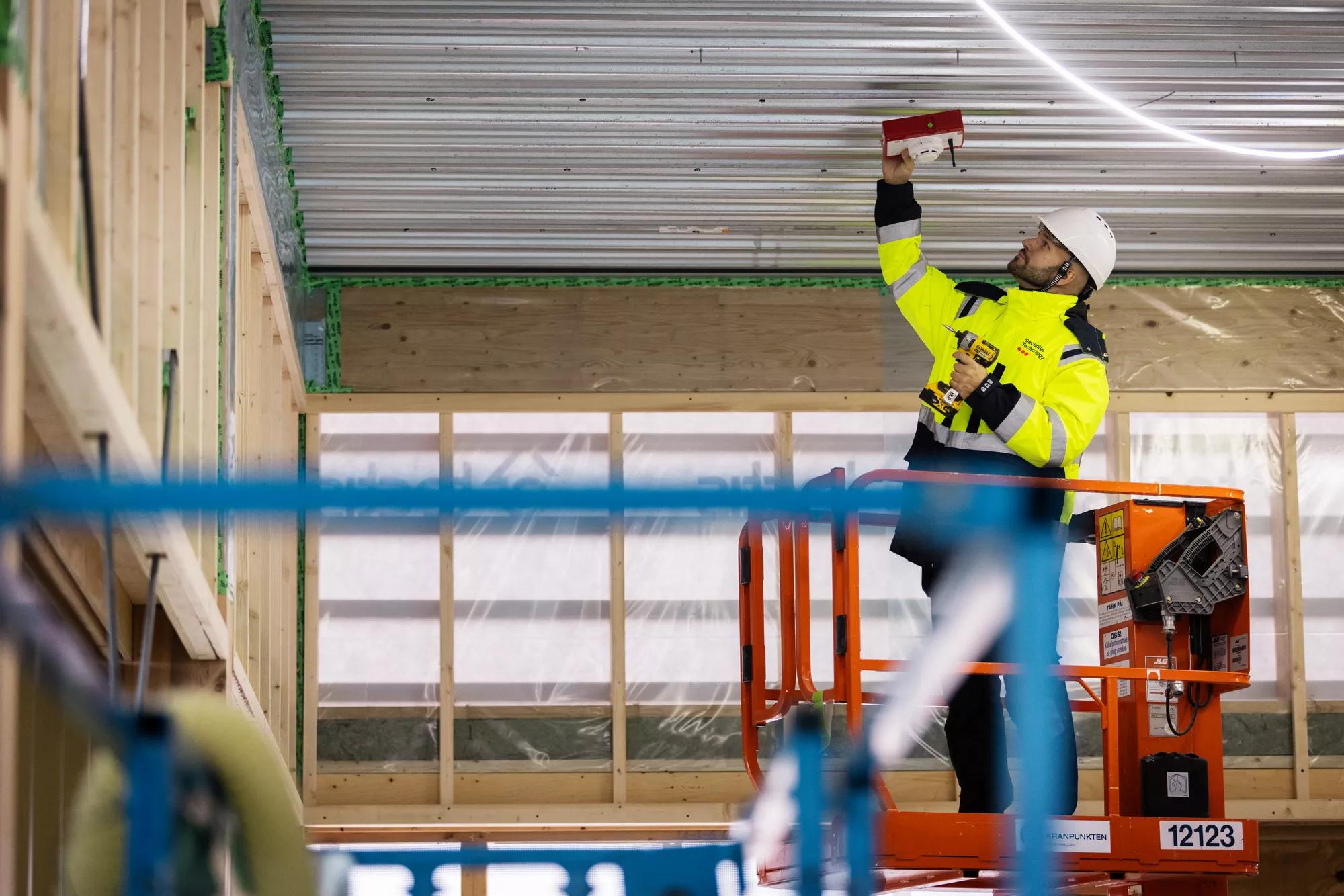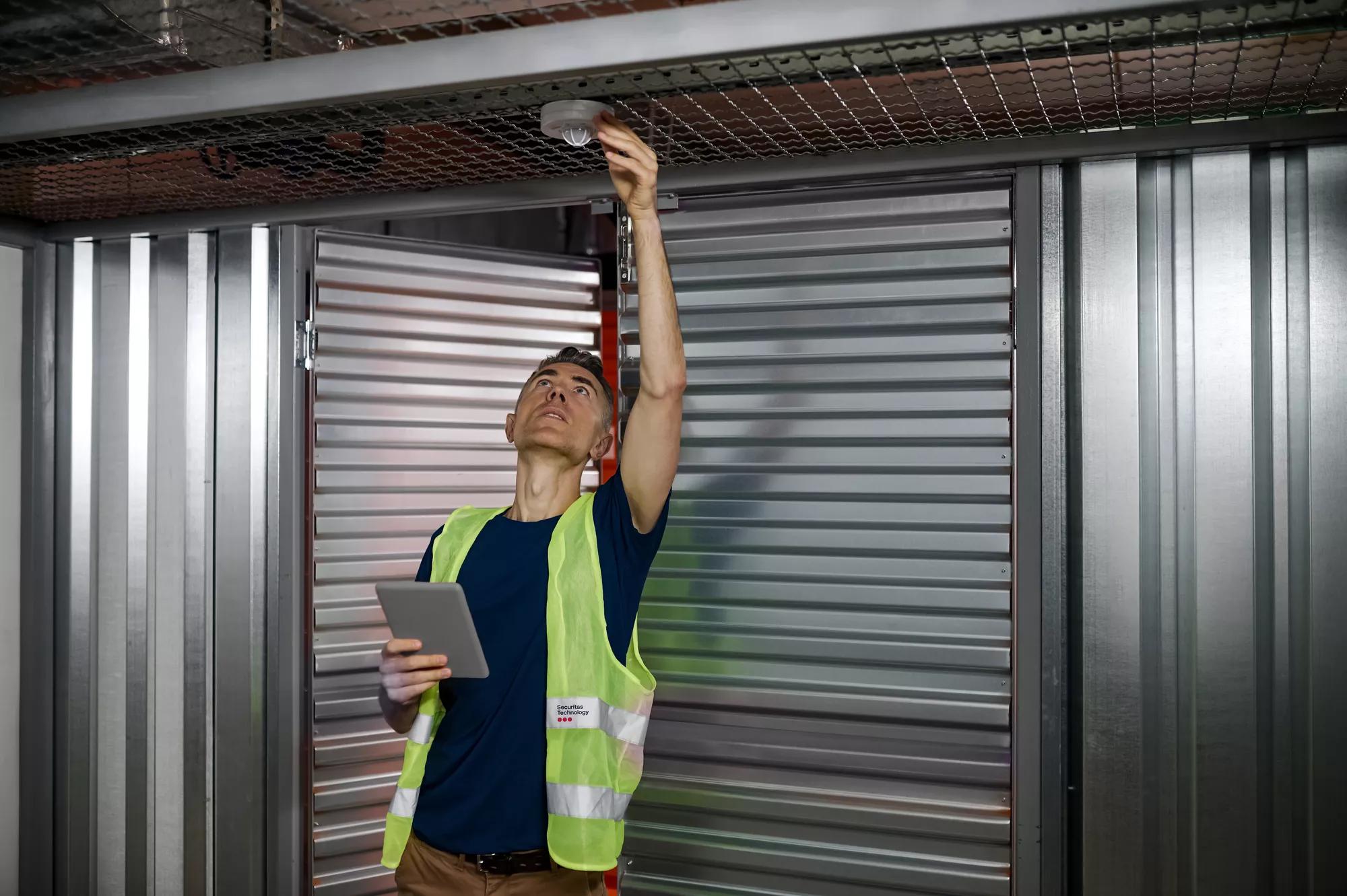Five Benefits of Tech-Enabled Fire Alarm Monitoring

Whether a local commercial or enterprise business - no organisation is immune from the dangers of fire-related events.
However, many leaders may question the value of adopting a commercial fire alarm monitoring system for their organisation. Although all businesses must equip their premises with fire extinguishers and fire-detecting systems, how can leaders be confident a comparably more protective and expansive commercial fire alarm system is suitable for their business?
To answer this popular question, let’s review the basics of commercial fire alarm monitoring and discuss the benefits of adopting such a system in your business.
Necessary components of a commercial fire alarm system
Fire alarm systems are essential in helping to protect the safety of your business’s people, property, and assets. They are the primary method of alerting emergency responders, employees, and customers to potential fire hazards and related safety risks.
When provided by professional and licensed partners like Securitas Technology, these systems take on a more critical role in helping to safeguard your business. A tech-enabled fire alarm system includes, but is not limited to:
- Fire monitoring and dispatch
- Early detection systems and advanced point ID technology
- Intelligent initiating and indicating devices
- Recall and shutdown interfaces
- Standalone or integrated panels test and inspection services
- Advanced diagnostics and occupant notification
Benefits of a commercial fire alarm monitoring system
Commercial fire alarm monitoring offers numerous benefits, including the prominent and most important role of safeguarding your people and assets, while initiating the proper emergency response.
1. Augmented protection for your property
Fire alarm systems provide always-on support for your property, helping to protect against catastrophic damage day and night. A well-designed and maintained system can properly identify the presence of a fire using heat, smoke, and carbon monoxide detectors. These protective measures facilitate early intervention, helping to prevent or mitigate fire-related damage.
While traditional smoke and heat detectors are indispensable, innovative technologies like flame detectors and heat-detecting video surveillance can provide an additional layer of protection. Automation-enabled systems can also operate around the clock, enhancing safety during off-hours.
Fire alarm monitoring is particularly indispensable when integrated with existing security programs to create an all-in-one ecosystem. Leaders who adopt a cohesive security program including fire alarm monitoring can compile comprehensive insights from these technologies, painting a better picture of their organisational resource allocation. Furthermore, a cohesive security ecosystem simplifies the process of threat escalation, first response and disaster planning - for fire and other threats, natural or otherwise. Ultimately, interoperability of this scale creates an incredibly robust security and safety posture.
2. Built-in code compliance
Fire safety regulations vary depending on many factors, including the locality, type of building, and nature of the business conducted therein. Here in the UK, the Regulatory Reform (Fire Safety) Order (RRFSO) dictates several alarm reporting and fire prevention guidelines, to establish the minimum requirements for fire protection and life safety systems. These codes cover all aspects of fire alarm compliance, including design, installation, testing, inspection, employee training, and fire alarm monitoring, with specific guidelines for different localities, building types, and industries.
Leading providers design their commercial fire alarm systems to be code-compliant, removing the burden of interpreting complex and often changing requirements. At Securitas Technology, we ensure our fire alarm services meet or exceed local requirements. Our smart fire alarm management system automatically logs system data, including fire alarm tests, compliance reporting, and appropriate legislative requirements.
3. More reliable monitoring capabilities
Modern fire alarm systems leverage innovative technologies to offer more reliable monitoring capabilities. This function goes beyond 24/7 protection to encompass advanced analytics that help to reduce false alarms and provide greater context to first responders. These systems provide emergency respondents with information about a fire’s location and severity, and alarm verification data to expedite the fire resolution process.
Leaders seeking unparalleled safety and visibility can also connect their commercial fire alarm system to a central monitoring service. Securitas Technology’s best-in-class remote alarm monitoring team manages false alarms, helps prevent losses, alerts on-site staff to any emergency event, and initiates the emergency response needed when seconds matter most.
4. Improved risk mitigation
A fire alarm monitoring system is key to a leading risk management strategy. Fires often cause massive and immediate damage to an organisation’s physical premises, and long-term damage - financial and reputational - often results. A robust fire monitoring system with early detection and notification abilities can minimise business disruption by ensuring a swift response.
Furthermore, many insurers offer lower premiums to properties with commercial fire alarm systems, knowing these systems significantly decrease an organisation’s risk of catastrophic damage.
5. Advanced fire alarm integration possibilities
Investing in a fire alarm system that makes use of modern fire detection technology offers the additional benefit of integration with other critical electronic security and building safety systems. The ability to connect your fire alarm to other systems such as access control, heating, ventilation, and air conditioning (HVAC), and mass notification systems can help to optimise the way in which you, your building, and your employees react in the event of a fire breaking out. This type of integration is also required by most building and fire codes.
As an example, an integrated fire alarm system can be designed to trigger fire relays that release specific doors to facilitate free egress, shut down HVAC units, and activate air ventilation systems, signage, or voice evacuation systems.
How can I deploy fire protective systems in my business?
Your organisation likely conducts regular Fire Risk Assessments: an annual audit of each physical premise’s fire safety protocols. Review your most recent assessment to identify potential fire hazards and associated collateral damage. By understanding these risks, you better understand your system’s weaknesses, which can guide the process of selecting an appropriate fire monitoring system.
Decision-makers seeking guidance during this step should consult with a fire alarm and safety expert to determine which systems best fit their organisation. Here at Securitas Technology, our team of experts can walk you through:
- Auditing your current system.
- Selecting additional services.
- Installing and updating new technologies.
- Training your staff on new protocols.
- Ensuring your fire response systems are interpolated and communicating with other technologies appropriately.
In summary
Commercial fire alarm systems are a crucial investment in your people's safety and your business's security. Understanding their components and benefits empowers you to make a more informed decision about which technologies to adopt today. Fire systems and services vary greatly and are largely driven by code compliance and regulations. Using a professional and licensed fire alarm provider is an important step in ensuring you receive the right guidance and a code compliant system that is right for your business.
Learn more about how we can partner with you to help create a safer and more secure environment for your employees, customers, and visitors.
Disclaimer: By using the Blog section of this website ("Blog"), you agree to the terms of this Disclaimer, including but not limited to the terms of use and our privacy policy. The information provided on this Blog is for information purposes only. Such information is not intended to provide advice on your specific security needs nor to provide legal advice. If you would like to speak to a Security representative about your specific security needs, please contact us.






















